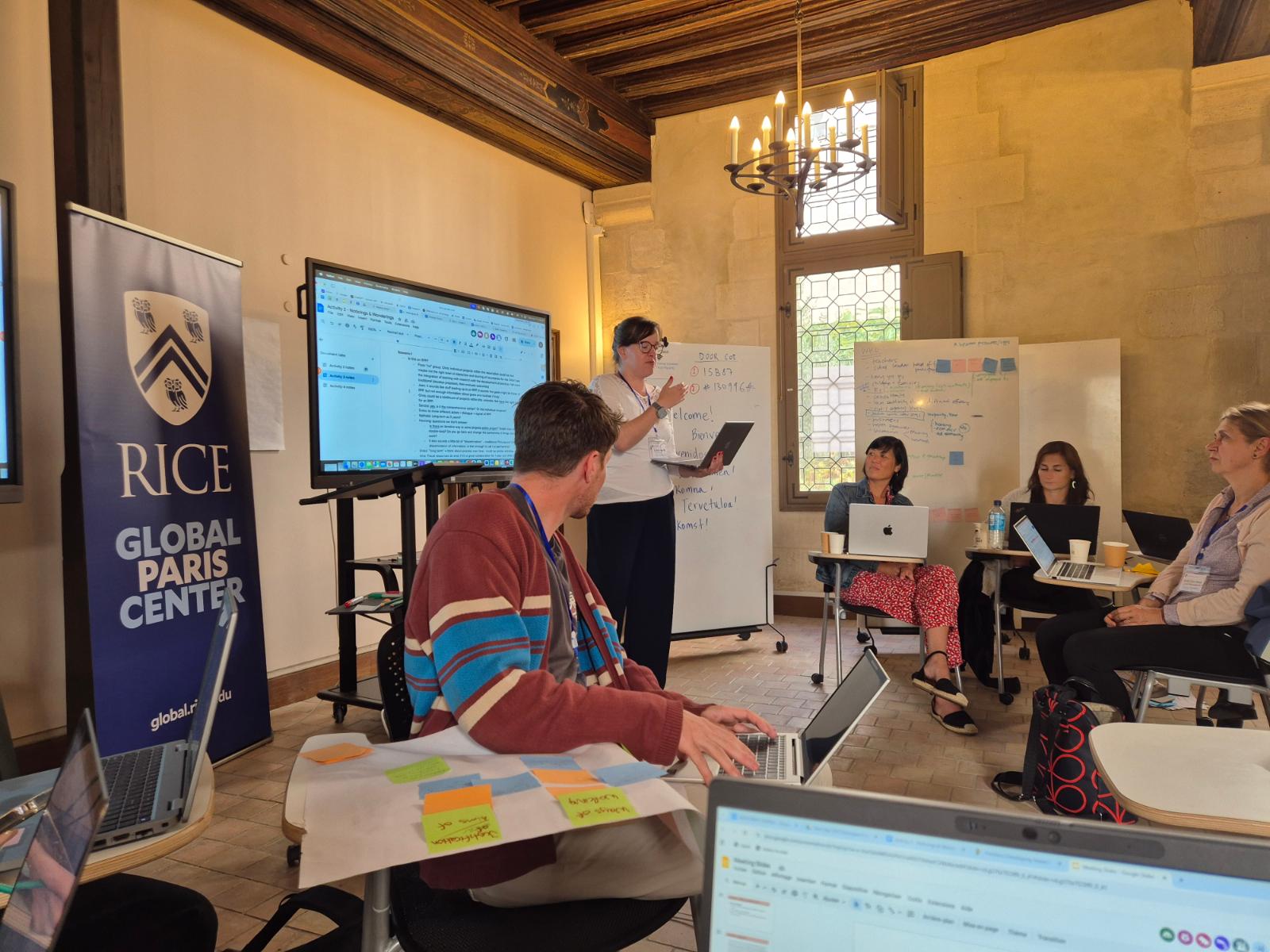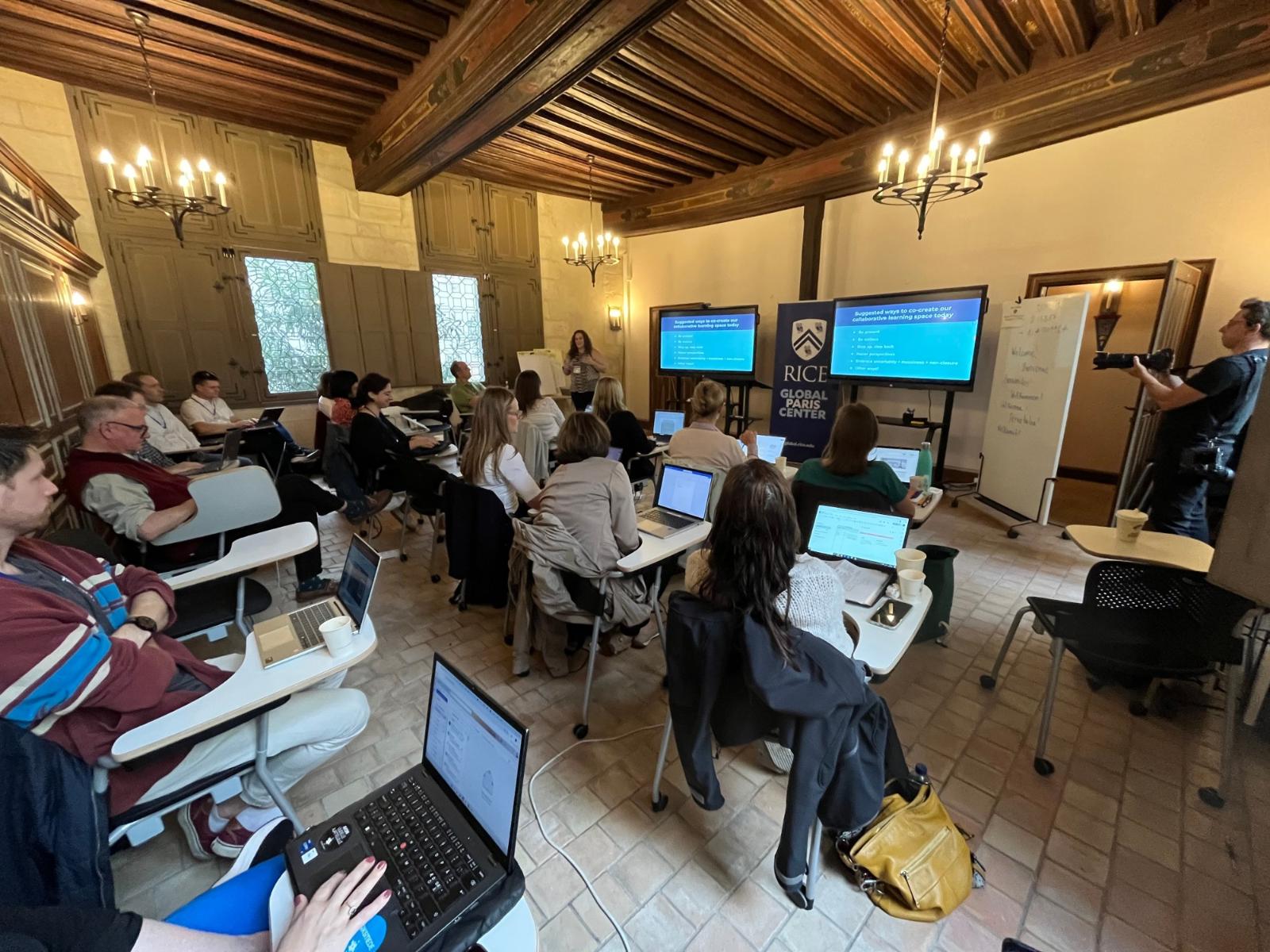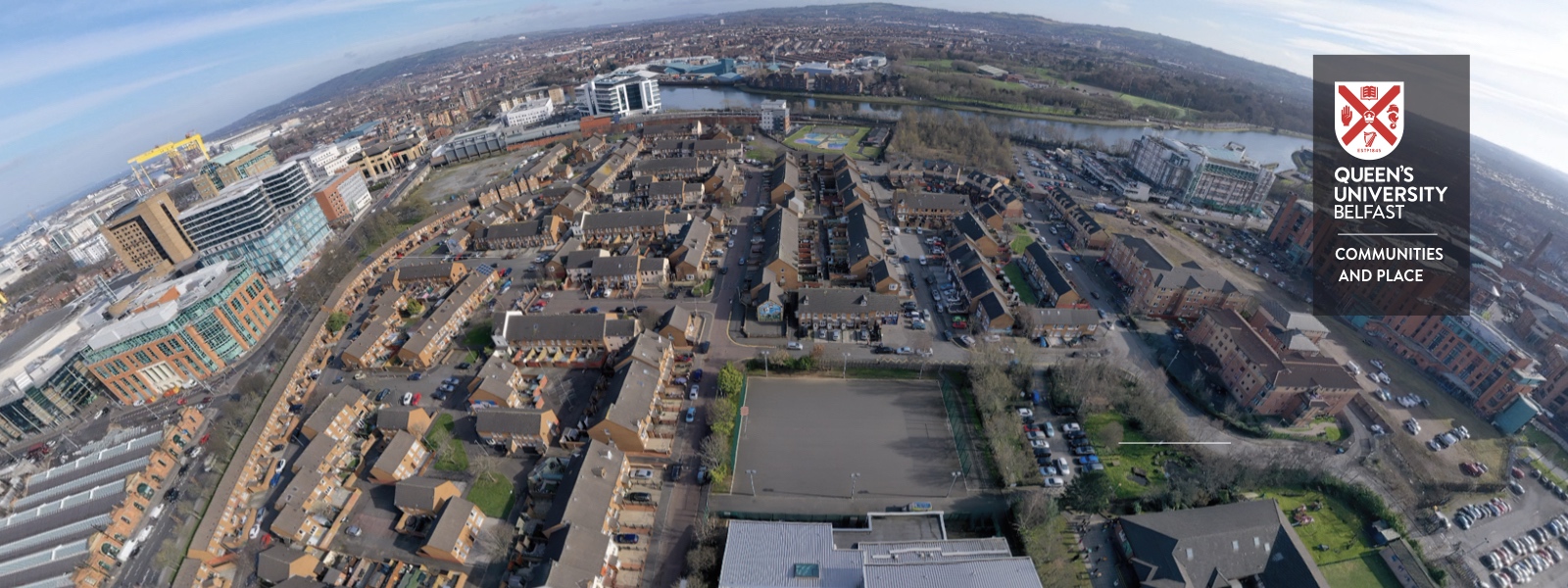Building An International Network of RPPs
QCAP joins international discussions on the future of research–practice partnerships in education

In September 2025, Dr Gareth Robinson joined education researchers from across Europe and North America for a three-day meeting in Paris convened by the National Network of Education Research–Practice Partnerships (NNERPP) and hosted by Rice University Global. The purpose of the meeting was to explore how an international network of research–practice partnerships (RPPs) might be developed and what form this collaboration could take across education systems.
Participants from more than ten countries contributed perspectives from a wide range of contexts, each shaped by different national structures and approaches to educational improvement. What stood out most was the diversity of partnership models represented. In Norway, RPPs form part of a national framework involving more than a thousand schools. Elsewhere, partnerships operate regionally or locally, linking teachers, researchers, and, in some cases, district administrators around shared priorities. Despite these differences, participants identified common foundations: long-term relationships, mutual trust, and collective inquiry as the conditions that allow partnership work to make a lasting difference.
Discussions often turned to what enables this type of work to thrive—the importance of brokers who connect research and practice, professional learning as a driver of improvement, and the challenge of maintaining partnerships beyond individual projects. There was also reflection on how RPPs can be designed to include practitioners and communities as equal partners in shaping research priorities and interpreting findings.
These themes resonate strongly with current education policy in Northern Ireland. TransformED sets out a clear ambition for research-informed practice and collaboration to play a greater role in improving the quality of teaching and learning. QCAP’s work through the South Belfast Primary Schools Partnership, the Shankill primary schools, and the Belfast Community Research and Innovation Network (BCRIN) aligns closely with this direction, providing practical examples of how schools, communities, and academic partners can use research as a tool for learning, reflection, and improvement.

The Paris meeting reaffirmed the appetite for greater international exchange among those leading and supporting RPPs. While no formal structures were agreed, participants expressed a shared interest in continuing this dialogue and exploring how a future network might support joint learning, comparative research, and shared resources. QCAP’s contribution focused on the importance of place-based and community-engaged approaches, emphasising that partnerships work best when they reflect the social and cultural contexts in which education takes place.
Although the next steps are still being confirmed, QCAP intends to remain involved in these discussions as work continues towards shaping this new international RPP network. The Paris conversations reinforced that partnership is as much about learning as it is about structure. Whether across a city, a region, or a continent, improvement depends on the quality of relationships and the willingness to learn together over time. For QCAP, the experience also raised important questions about what genuine collaboration looks like when research and practice meet. Can a partnership grow without becoming detached from the people and places that sustain it? What does reciprocity look like when working across different systems? And how do we keep learning central as partnerships evolve? Perhaps the challenge is not only to build partnerships, but to learn how to inhabit them differently.

